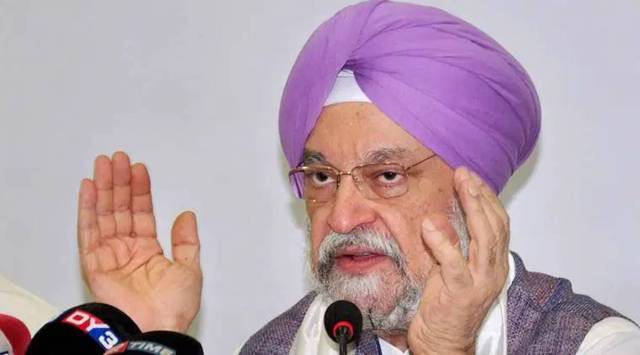“Water crisis in India is not due to lack of water but primarily because of mismanagement of water resources,” said Hardeep Singh Puri, Union minister for housing and urban affairs and petroleum and natural gas.
He was speaking at the 2023 Policy and Practice Forum (earlier known as SFD Week), an international gathering of water, wastewater and sanitation management stakeholders and experts convened by Centre for Science and Environment (CSE) from April 25-27, 2023, at CSE’s residential facility, the Anil Agarwal Environment Training Institute.
“As far as energy is concerned, we have a very well laid out plan for green transition. But in the case of water, we don’t have a choice. It is getting more precious and scarcer at an alarming level, and climate change is going to aggravate matters much more. While treaties might resolve political conflicts around water, they will not tackle the need to fundamentally alter the way we extract, consume and dispose of water, as well as the way we plan and mange sanitation systems”, he said.
Delivering the opening address, CSE director general Sunita Narain said: “Over the past decades, the country has learnt critical lessons on water management and has evolved a new paradigm. But in spite of that it is clear that we are not doing enough to secure our future”.
She deplored that the problem lies in the fact that our land and water bureaucracies are fractured — some agency owns the pond, another the drain and yet another the catchment. Water security requires this to change. Giving the local community much greater control over the water structures — deepening democracy and devolution of powers — is the answer, she added.
Depinder Kapur, director of CSE’s water and wastewater programme, said: “The Forum will be focussing on providing inclusive and affordable solutions for water and sanitation management.” Being organised in collaboration with the Water Research Commission (WRC), International Water Association (IWA), Faecal Sludge Management Alliance (FSMA), University of Columbia and GIZ, this international meet is designed as an experience-sharing and agenda-setting forum.
“The Forum has brought together some 100 policymakers, practitioners and researchers to deliberate on the conditions prevailing at present and the priorities for the future,” Kapur added.



